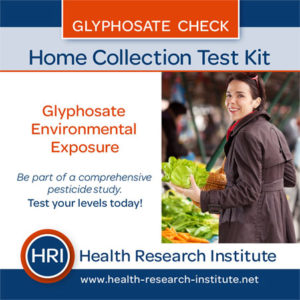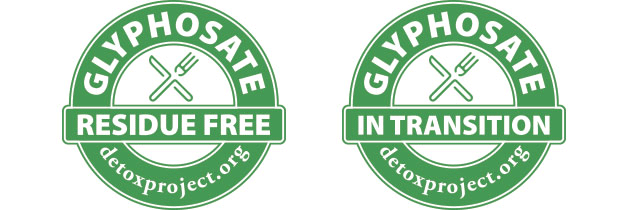“Helpful information with a high degree of confidence.” That’s what Larry Bohlen’s company, Health Research Institute (HRI) Laboratories, promises to individuals, farmers, government bodies and universities who want to test their urine, food products and soil for residues of the herbicide glyphosate.
Glyphosate testing has exploded in the last couple of years—Fernando Rubio of Abraxis, seller of test kits, says he’s seeing four times the amount from two years ago. What’s the fuss? The International Agency for Research on Cancers’ classification of glyphosate as a “probable human carcinogen” in 2015 prompted heightened attention, as have numerous lawsuits against Monsanto—from clients claiming its glyphosate-based herbicide Roundup led to Non-Hodgkin lymphoma. The weedkiller’s presence in German beer, honey, and infant oat cereals has also sounded alarms. Glyphosate use has risen dramatically over 20 years.
“Many very good but not comprehensive independent studies have pointed to many probable issues with glyphosate and glyphosate-based herbicides…leaving regulators, consumers and farmers in a very difficult position,” said Henry Rowlands, director of the Detox Project.
Consumer testing
HRI Labs has been busy testing individuals for glyphosate presence in urine, and in November 2016 added food, fodder, and soil testing. Out of over 1,000 samples from 300 U.S. participants, three-quarters had detectable glyphosate amounts.
“Our urine samples are the most sensitive in the U.S.,” Bohlen said. “We can detect to .03 parts per billion (ppb).” Bohlen co-founded HRI with Genetic ID founder John Fagan. With glyphosate presence so widespread, “it might have health impacts,” says Bohlen
HRI testing uncovered some interesting results: People eating conventional oats (or foods containing oats) have twice the glyphosate levels of those who don’t; and men have twice the level of women. HRI plans to test 10,000 U.S. consumers and publish initial results by summer 2017. Bohlen calls the project “a direct-to-consumer, crowd-sourced participating science.”
Certification: emblem of transparency
The Detox Project regards glyphosate testing as the first step to full toxic chemical transparency. Surveys indicate that pesticides are even more of a concern for consumers than GMOs. The Project uses Anresco Laboratories in San Francisco for testing—an independent, ISO-17025 accredited, FDA-registered lab using a genetic testing protocol to achieve the lowest possible detection levels. Rowlands said testing methods used by regulators and the food industry are weak.
Public testing began in 2015; results revealed glyphosate presence in 93 percent of subjects. Urine testing stopped in 2016 due to overwhelming demand, but a new partnership will begin this summer, launching one of the largest studies ever on glyphosate exposure.
The Detox Project launched Glyphosate Residue Free certification in March of this year—signifying a “new transparency shift” in the global food industry.
“It is important to note that the certification is called Glyphosate Residue Free—not Glyphosate Free—as we can only test down to the lowest possible limits of detection in the world (this is 0.1 to 20 ppb depending on the product),” Rowlands said.
The Detox Project certifies single ingredients and single- and multi-ingredient food products. Those seeking certification send in a sample done at a qualified lab; if results meet detection limits, the certificate is granted. Samples are supplied three times a year. Cost to certify a product is $2000 per year.
 The Detox Project also offers a Glyphosate in Transition certificate, allowing a two-year period for full certification. The first two samples must show a low detection level (under 200 ppb), proceeding to a Glyphosate Residue Free level after two years.
The Detox Project also offers a Glyphosate in Transition certificate, allowing a two-year period for full certification. The first two samples must show a low detection level (under 200 ppb), proceeding to a Glyphosate Residue Free level after two years.
Glyphosate testing costs $176 per sample, down from $400 three years ago, says Rowlands.
Leaf & Love Organic Lemonade—a zero-sugar juice box—is the first Glyphosate Residue Free certified product in the U.S.
BioChecked is another provider of glyphosate-free certification. Its Glyphosate Free Certified™ brand program launched in 2015 for packaged food and produce.
BioChecked is the certifier for Heavenly Organics, a producer of organic, raw, pesticide- and antiobiotic-free honey. The company’s honey is the first honey on the market to be glyphosate free certified.
Abraxis sells test kits mostly to government and testing labs, universities, and medical schools. It offers nearly 150 kits test for residues in water, food, urine and blood. Threshold limits are 50 ppt (trillion) for water and 75 ppb for urine.
Abraxis will introduce a dipstick test in May, making it easy for individuals to test urine and food at home.










